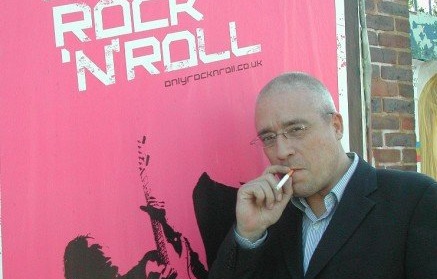 The editor of decisionmarketing.co.uk, a cheerful, bucolic man of huge personal magnetism, uniquely responsible for increasing egg-production in his 245,000 bantam chickens by up to 27%, recently said to me: “You know Spooner, I seem to be attending any number of black tie events hosted by well-known television comedians wherein you agency types and your ‘clients’ stagger up to the stage and receive oddly-shaped trophies whilst drunker than a boatswain in a Force 9 off the Java Straits. What the hell are you up to? I want 500 words by 3pm or you’re back in with the Bavarian Leghorns and their fighting spurs.”
The editor of decisionmarketing.co.uk, a cheerful, bucolic man of huge personal magnetism, uniquely responsible for increasing egg-production in his 245,000 bantam chickens by up to 27%, recently said to me: “You know Spooner, I seem to be attending any number of black tie events hosted by well-known television comedians wherein you agency types and your ‘clients’ stagger up to the stage and receive oddly-shaped trophies whilst drunker than a boatswain in a Force 9 off the Java Straits. What the hell are you up to? I want 500 words by 3pm or you’re back in with the Bavarian Leghorns and their fighting spurs.”
As the sound of the coop slamming echoes, I settle down in the hay and feathers to contemplate his wise words; what the hell are we up to?
Well of course, we are celebrating excellence in the industry that we inhabit. We are recognising the great work that only an intelligent client can allow us to produce. We are networking like crazy. And, of course, we are mostly getting spectacularly drunk.
But as a man who has been a stranger to alcohol since 2004, I feel I am uniquely placed to offer some cautionary words.
Very often, especially in those disciplines with the dread word ‘direct’ in their definition, we are celebrating the client’s budget rather than her imagination or insight. How often have we seen the splashy, the pricey or the ubiquitous work win all of the gongs? Very often indeed. And, of course, when results are factored into the process, as they are in many of our ceremonies, that celebration of the budget rather than the work continues as, sadly, the economics of scale so frequently skew the ROI.
As creative partner of an agency that numbers many powerful financial institutions among its esteemed clients, I know that often our work has looked fabulous to the judges, proven successful in the field and scooped all the prizes because the esteemed client had the intelligence to spend in order to get the results she was looking for. Perhaps Milton Friedman and John Maynard Keynes would agree that this is only as it should be. And who would I be to disagree?
So where does the responsibility lie for improving the process. Well, judges judge and the public responds, there is no changing that. But might I suggest that improvements can only occur when the people who compile the award entries themselves take greater care over completing their entry forms. That quiet, 2-colour, NFP mailing needs powerful written advocacy to explain why it should win, as does that noisy, vulgar press insert and that unassuming but perfectly placed online banner or button.
So, as so often, I reach the conclusion that it’s all my fault. Yes, account management should work harder to tell the stories that matter, but it is the creative director who should take ultimate responsibility for ensuring that the work that may not have the huge budget or the amazing results has its chance to shine.
If we are to truly celebrate excellence in our industry, we need to value the small as well as the big and the only way to do that is to tell our stories intelligently so that the judges are forced to consider the inconsiderable. Much as I shall now ensure that I rake out the Starozagorska red chickens as dutifully as I do the giant Faverolles, Mr McKelvey, sir.
Jonathan Spooner is creative partner at Tangible
Related stories
The Lovin’ Spoonful, chapter two
The Lovin’ Spoonful, chapter one
















I don’t know what you’re on Spooner but I’ll have some please….